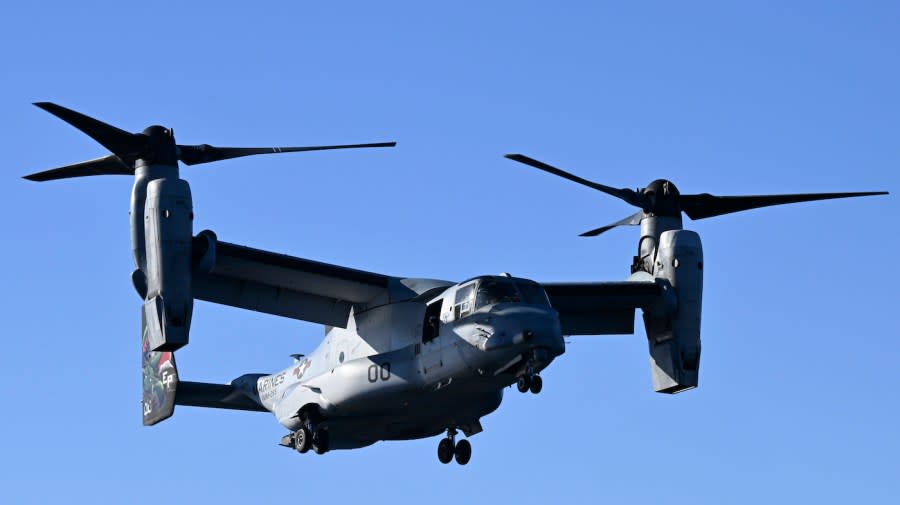Marines order safety review after deadly Osprey crash

Acting Marine Corps Commandant Gen. Eric Smith has ordered a service-wide safety review following a deadly MV-22B Osprey crash in Australia this past weekend.
Three Marines were killed and 20 were injured Sunday when an Osprey tiltrotor aircraft crashed on Melville Island, north of Darwin, an incident that remains under investigation.
In a message to the force on Tuesday, Smith, the current assistant commandant of the Marines, ordered a “thorough and harsh review of our processes to confirm that our culture of safety is still strong.”
“Caring for the families of any Marine lost in a training mishap is our primary concern, and we can never offer them all that they deserve as they deal with the loss of their loved one,” Smith wrote. “I believe they may take comfort knowing that every possible measure has been taken to prevent a future mishap. Safety is a key element of our warrior culture. When we lose Marines we are not only heartbroken, but we are also less ready for combat.”
The Marines killed Sunday were Cpl. Spencer Collart, 21, of Arlington, Va.; Capt. Elanor LeBeau, 29, of Belleville, Ill.; and Maj. Tobin Lewis, 37, of Conifer, Colo. Another eight Marines were still hospitalized as of Monday.
Smith directed a unit-level review of Marine safety culture, to be completed no later than Sept. 15, with each unit “to discuss, in detail, the elements of what it means to be a professional warfighting organization as it relates to the safe conduct of every event from training to combat.”
He adds: “I am accountable to all Marine families and United States national leaders for the safety of Marines. In turn, you are each accountable to me for the safe conduct of training and operations,” noting that despite significant improvements to lethality and readiness, “we continue to lose nearly a platoon’s worth of Marines and sailors to training accidents and off-duty mishaps each year.”
There have been issues in the past with the Osprey’s clutch, which connects one of an Osprey’s two engines to the propeller rotor, slipping for unknown reasons and forcing the aircrew to immediately land the aircraft.
The “increased number of safety incidents,” including four since 2017, forced Air Force Special Operations Command (AFSOC) to ground its entire fleet of the CV-22 version of the aircraft due to safety concerns just over a year ago.
On Tuesday, Pentagon deputy spokeswoman Sabrina Singh told reporters that it was too soon to tell whether Sunday’s accident stemmed from a problem with the clutch.
“I think we do certainly have confidence in the Osprey,” she said. “If anything changes, if these investigations lead to something that would cause us or a service to adjust anything about how we believe the Osprey should be used, we would do that. But at this time, we have confidence in that.”
For the latest news, weather, sports, and streaming video, head to The Hill.

